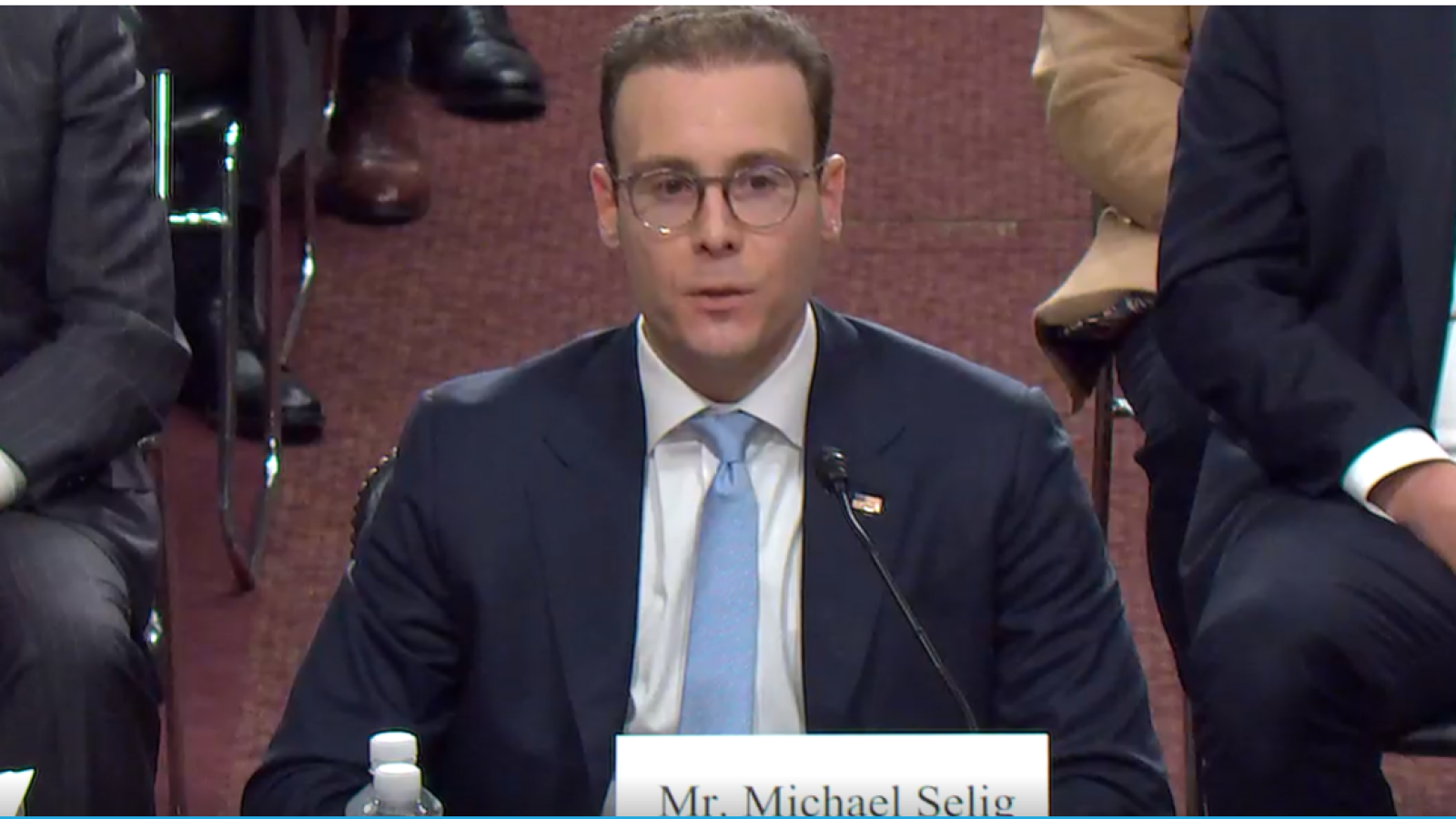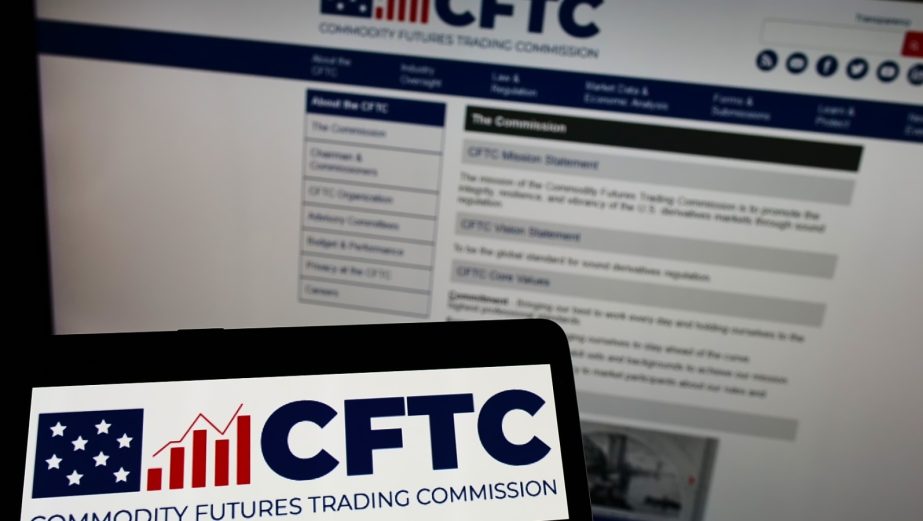Commodity Futures Trading Commission (CFTC) chair nominee Michael Selig avoided answering questions on sports event contracts during a Senate committee hearing Wednesday, saying he would “look to the courts” even when it came to questions that are not a significant part of ongoing lawsuits.
Selig was questioned by the Senate Committee on Agriculture, Nutrition, and Forestry about his candidacy for the role of chair of the CFTC. The hearing comes ahead of a vote by the committee – now scheduled for Thursday – on whether to advance the nomination.
While much of the questioning concerned agricultural commodities or cryptocurrency, Selig was also asked about prediction markets and sports event contracts. In 2024, during his time as a lawyer for Willkie Farr & Gallagher LLP, Selig worked on a letter that argued it was “arbitrary and capricious” to ban sports event contracts, while working as outside counsel for a venture capital fund.
‘I will look to the courts’
During the hearing, Selig responded to virtually all questions about event contracts by saying that he will defer to the courts on the matter.
For example, in response to a question from Sen. Tina Smith of Minnesota on whether he would block sports event contracts, Selig said, “These are very challenging interpretative questions that I will look to the courts on.”
Courts in Nevada, New Jersey, Massachusetts, Maryland, and New York are currently considering cases related to the legality of sports event contracts.
Selig gave similar answers even when asked about issues that were not actually the subject of ongoing court cases. In fact, most of the prediction market related questions from senators concerned the question of whether sports event contracts are gaming. This issue has not been debated in court, as Kalshi has instead typically focused on the argument that, even if its contracts were gaming, the CFTC would still be allowed to permit them if it wishes to do so.
A “special rule” in the Commodity Exchange Act — and a related line in the CFTC’s regulations — addresses “contracts involving gaming.” However, Kalshi has argued that even if its contracts were gaming, those rules actually support the argument that its contracts should be allowed.
During questioning from Sen. Adam Schiff of California, Selig said he would defer to the courts in a number of situations that appeared increasingly far from unsettled legal questions.
At one point in the hearing, Schiff asked Selig, “If you and I bet on who wins the Bills game tomorrow, would you consider it gambling?”
Selig said: “On this issue, I would look to the courts.”
Schiff also asked if there was any type of activity that Selig would consider to be sports gaming.
Selig said: “Many lengthy legal opinions have been written about one word in a statute and I would really want the benefit of understanding what the judges think on the issue.”
What does it mean to defer to courts?
In practice, deferring to the courts would appear to mean not taking action against sports event contracts until cases about their legality are settled by the judiciary. At that point — which may be years away — a court may rule that sports event contracts are either an illegal form of sports betting, or that the CFTC has exclusive jurisdiction over the contracts.
If the contracts are an illegal form of sports betting in violation of state gambling laws or the Indian Gaming Regulatory Act, the CFTC would not need to intervene in order for them to be banned, as states or tribes could do so.
Therefore, the only situation in which a decision from the courts could prompt the CFTC to interfere in a meaningful way would be if prediction markets like Kalshi won their lawsuits. However, both parties in all ongoing sports event contract lawsuits agree that the CFTC could already block sports event contracts from being offered now if it believes the contracts to be in violation of its own rules.
As a result, deferring to the courts in practice is likely to produce similar results to a stance of permitting sports event contracts.
Andrew Kim, a partner at Goodwin Law, told InGame that the central question before the courts — preemption — isn’t one for the CFTC to decide.
“The way I interpreted Mr. Selig’s comments is that ultimately, it’s for the courts to decide whether state gaming/gambling law can apply in conjunction with the Commodity Exchange Act (or whether the CFTC’s exclusive jurisdiction excludes the states from playing a role),” he said. “And he’ll abide by what the courts say, once the issue is finally settled.
“Courts might give some weight to what the CFTC thinks about the practical implications (and difficulties) of having to co-regulate with the states. But what the CFTC thinks about the preemption question isn’t outcome-determinative because the question is for a court, not a regulator, to decide.’
Vote on Selig nomination Thursday
The committee will vote on Selig’s nomination Thursday. The committee vote will take place “in conjunction with the 1:45pm floor vote.” Committee meetings held in conjunction with a floor vote usually start just before the vote, pause for senators to get to the floor and then resume shortly after voting is complete.
The committee will also vote on the nominee to be Under Secretary of Agriculture for Rural Development at the same time.
Comments from Sen. Cory Booker of New Jersey suggested there may be some degree of bipartisan support for Selig’s nomination.
“I’m really encouraged by people on both sides of the aisle who appear to have really high hopes for your leadership,” he said.
If the committee votes to approve Selig’s nomination, the full Senate will then vote at a later date on whether to appoint him to the role.
Insider betting risk
Booker also questioned Selig on integrity protections at prediction markets, and the risk of insider betting scandals amid a number of high-profile recent cases of betting scandals at sportsbooks, detected thanks in part to sportsbooks’ integrity monitoring tools.
“All designated contract markets must apply with 23 core principals, including core principal 3, which is ‘contracts must not be readily susceptible to manipulation,’” Booker said.
“I want to ensure you have strong integrity systems in place so that athletes are not manipulating America’s pastime, America’s greatest sport which is football, and more.”
Selig again alluded to the authority of the courts, before acknowledging the importance of market monitoring.
“To the extent that these contracts constitute gaming, that’s a question for the courts,” he said. “But if they are being traded, then it’s essential that there is monitoring.”
Selig nominated after Quintenz stalled
Selig was nominated for the role of CFTC commissioner after Brian Quintenz’s nomination stalled. Quintenz – a Kalshi director and shareholder, as well as a former CFTC commissioner – had a hearing before the committee and was scheduled for a vote, but twice the vote was pulled at the last minute.
On the second occasion, the removal from the agenda was requested by the White House, after crypto entrepreneurs the Winklevoss twins lobbied against his candidacy.
If Selig is appointed, he may have a particularly high level of influence over the CFTC, as he will be its only commissioner, at least at first. The previous chair, Rostin Benham, left the CFTC in January, while former commissioners Summer Mersinger and Christy Goldsmith Romero both left their roles at the end of May. Current Acting Chair Caroline Pham will leave when a new chair is appointed.






